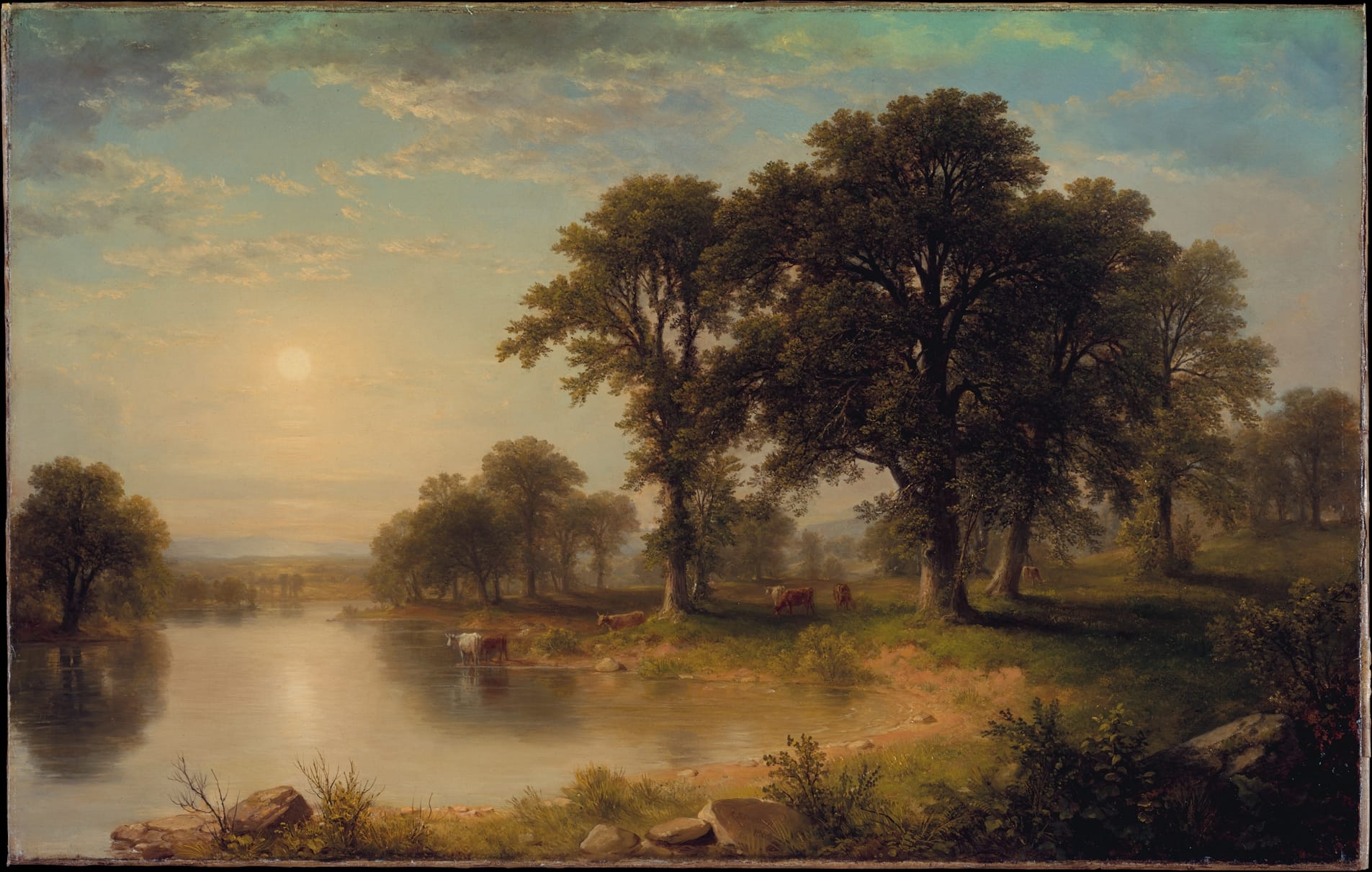Capturing Light

Almost nothing is more likely to make me stop and admire a painting than expertly rendered natural light, and Asher Brown Durand, one of the most prominent members of the Hudson River School, was a master:
"In this view of luminous water and misty distance, [Asher Brown Durand] demonstrated how carefully he analyzed the subtle changes taking place in nature and showed how well he knew the technical secrets of depicting them."
More:
- Durand actually began his career as an engraver and his work has appeared on bank notes American postage stamps: The Men Who Engraved Early U.S. Stamps.
The Dance of the Naked Emperors
By Adam Mastroianni. Experimental History.
Adam Mastroianni is a social psychologist who attended Princeton, Oxford, and Harvard. He's also an improv instructor. This piece is a funny, insightful, unflinching look at the reactions, public and private, to his claim that “peer review is a failed experiment”. I admire his resilience as he analyzes the weirdness and the vitriol directed his way, while still trying to push the conversation forward:
“People who are all-in on a hierarchy don’t like it when you question its central assumptions. If peer review doesn’t work or is even harmful to science, it suggests the people at the top of the hierarchy might be naked emperors, and that's upsetting not just to the naked emperors themselves, but also the people who are diligently disrobing in the hopes of becoming one. In fact, it’s more than upsetting—it’s dangerous, because it could tip over a ladder that has many people on it.”
More:
- Mastroianni doesn't only make bold claims, he makes bold moves: only a few years after earning his PhD, he left academia to pursue research in his own way: Adam Mastroianni’s ‘Invitation to a Secret Society’.
VIDEO: How Game Designers Protect Players From Themselves
By Mark Brown. Game Maker's Toolkit.
My approach to video games, which I didn't recognize as a specific playstyle until now, is apparently pretty common:
"Many players cannot help approaching a game as an optimization puzzle. What gives the most reward for the least risk? What strategy provides the highest chance – or even a guaranteed chance – of success? Given the opportunity, players will optimize the fun out of a game."
Mark Brown, a journalist and game designer himself, explores the ways "designers can tweak [a] game's most basic mechanics to push players toward a certain style of play."
This process requires both vision and thoughtful iteration, a combination that's tricky to master:
"forcing players to meet your vision and punishing them for playing otherwise, is fraught with difficulty."